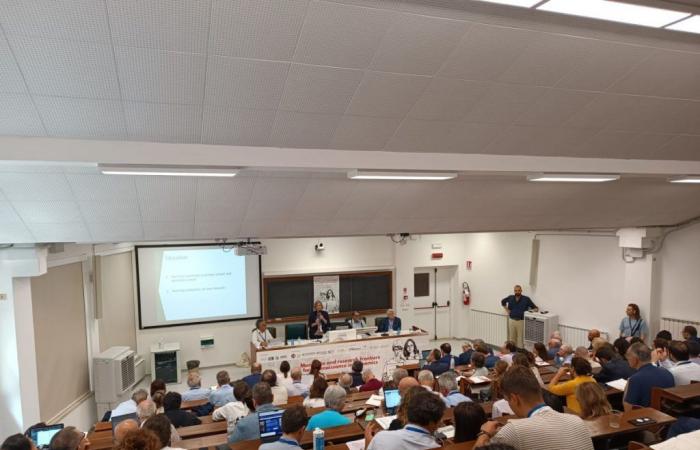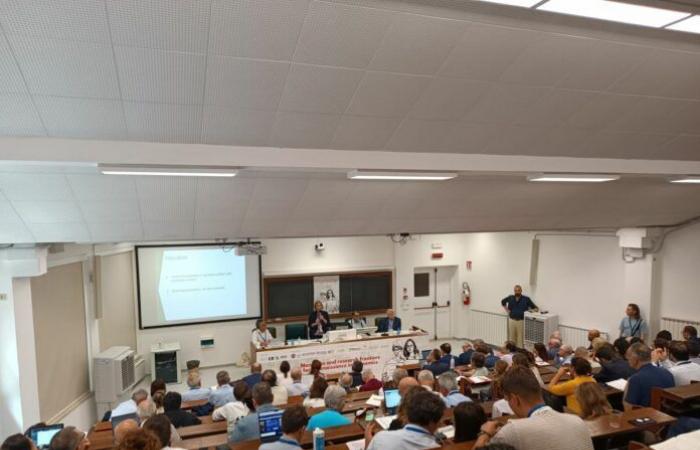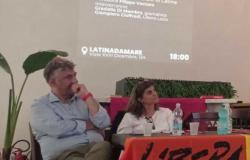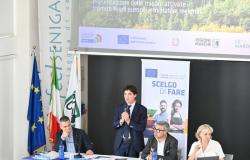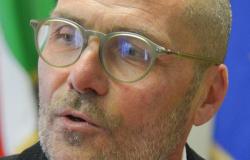PERUGIA (ITALPRESS) – The contents of the “Manifesto for the New Economy” were at the center of the opening of the second day of the international conference “Manifesto and frontiers of research for an economic Renaissance”, the two-day event underway at the Department of Economics of the University of Perugia. The event is intended as the moment of presentation of the Manifesto to the international community, proposing to all professors to bring the principles and themes of civil economy to their universities.
The Conference – organized by the Department of Economics of the University of Perugia, Federcasse BCC, Confcooperative and NeXt Economia, with the support of Fondosviluppo and the contribution of Assimoco, Fondazione Giorgio Fuà, Fondazione Perugia and Gioosto and with the patronage of Sites, Sied, Siecon, Aissec – will be a fundamental stage leading up to the 6th edition of the National Festival of Civil Economy, scheduled in Florence from 3 to 6 October 2024.
Renato Brunetta, President of CNEL – and member of the National Council of the Economy and Work, participated in the event with an audiovisual message, in which he described the body he presides over as “the house of intermediate bodies, open to the future” . “Our work – continued Brunetta – is also to bring together the worlds of research and culture in CNEL, to put corporate representatives in contact with civil society, the outside world, the University”.
And on the value of the networks between the different realities of the economic and social panorama, Brunetta said: “The value of human capital, economic and financial wealth represents a treasure, which in these networks multiplies squarely. A healthy free democracy in fact needs pluralism of opinions and interests.”
Fabrizio Barca, coordinator of the Inequalities and Diversity Forum, recalled how over the years the scenario has seen “increasing inequalities, overturning the distribution of wealth, seriously eroding the universal welfare system”.
“We have affected the human person by no longer recognizing their role,” continued Barca, referring to the concept of inequality of recognition. After having faced “one crisis after another”, the current scenario is marked by a “deep, authoritarian dynamic that shakes the entire Western world”.
“The Manifesto – said Barca – represents a potential for change in the method of public policy and corporate governance of capitalism”. Change must therefore be made “on decisions that are in the interest of social and environmental justice, also finding a compromise between different interests and values”.
“The policies built on the old top-down paradigm – continued Barca – which claim to offer equal standards for everyone, are poor policies, which represent a human being as a maximizing subject”.
“The ruling class – considered Barca – does not continue to understand the contents of the civil economy and the Manifesto, which is why it is necessary to work on the training of the ruling class”.
Mario Baldassarri, Professor Emeritus of the “La Sapienza” University of Rome and chair of the Real Economy Study Center, approached the topic of the civil economy, recalling that “man does not live on GDP alone, but without GDP he cannot survive Well. The responsibility of the work of the young economists, following the Manifesto, is therefore to improve the quantifications of the GDP, taking into account that in the meantime this is made up of 70% of services. The second point is that external economies and diseconomies have always existed, but we have forgotten to quantify them. We must therefore, for example, start quantifying environmental deterioration as a deterioration of the stock of the environment, which must be deducted from GDP”.
Stefania Cosci, from Lumsa University, explained how in her own university, “students who graduate in economics recite with great emotion the ‘Genovesì promise, with which they commit themselves to the issues of civil economy. At our University we try to bring out the good part of the economy, alongside the other models that tell you to maximize utility.” The objective is therefore “to spread economic knowledge among as many people as possible, starting from primary school. We will live in increasingly difficult contexts – continued Cosci – where having economic skills will be increasingly important for our young people. In Italy the level of financial and economic education is very low, we need to encourage the development of citizens aware of the complexity of the economy, who are not fooled by politicians who say that everything can be solved in a simple way. It is the only way to have citizens who can make choices favorable to the good of the community.”
– photo NeXt Economia press office –
(ITALPRESS).
Do you want to publish Italpress.com content on your website or do you want to promote your business on our site and on those of our partner publications? Contact us at [email protected]

